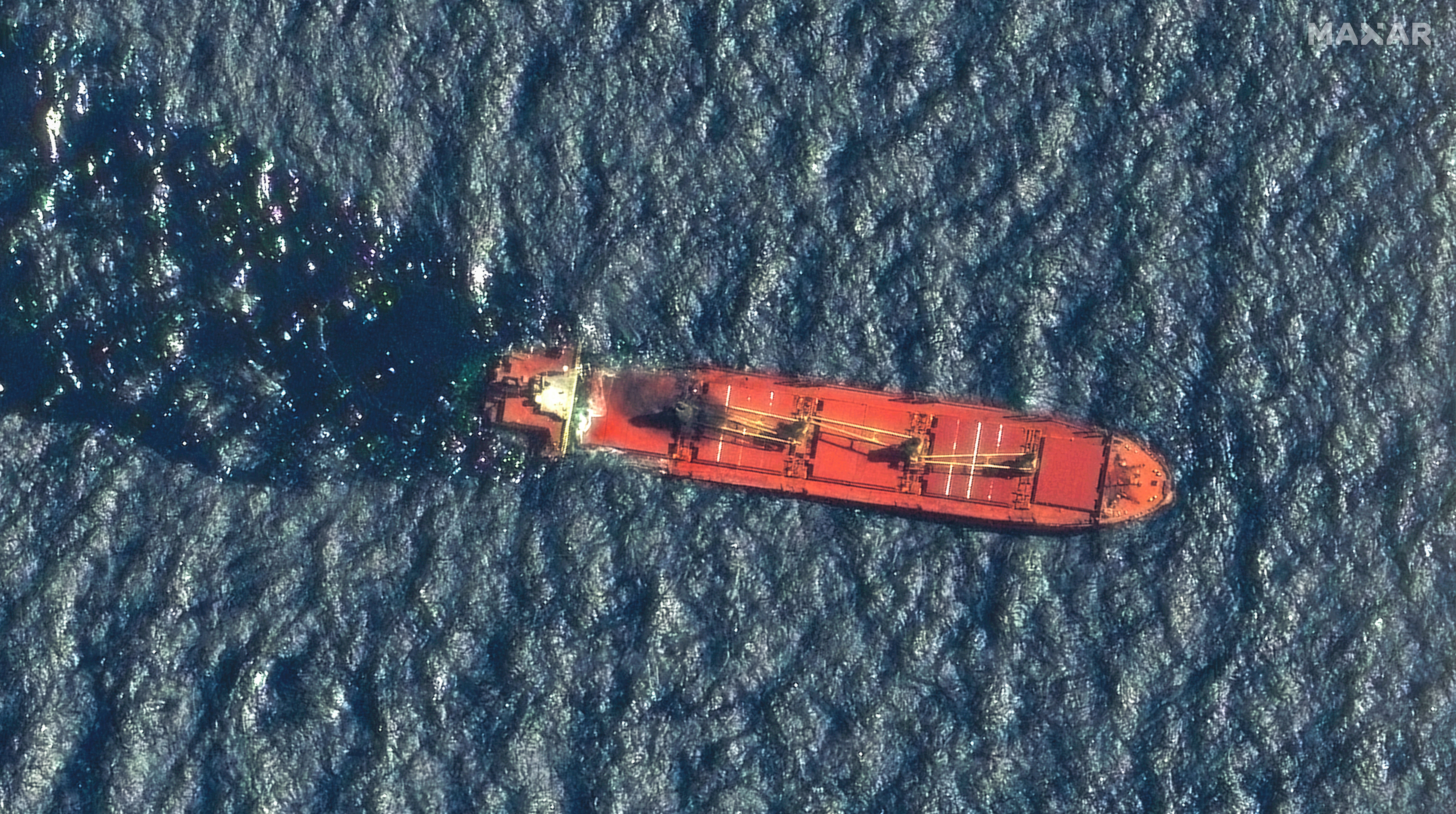Yemen’s Houthi rebels will target more British ships following sinking of UK vessel
It was the first vessel to be fully destroyed as part of the Houthis’ campaign in response to Israel’s war against Hamas

Your support helps us to tell the story
From reproductive rights to climate change to Big Tech, The Independent is on the ground when the story is developing. Whether it's investigating the financials of Elon Musk's pro-Trump PAC or producing our latest documentary, 'The A Word', which shines a light on the American women fighting for reproductive rights, we know how important it is to parse out the facts from the messaging.
At such a critical moment in US history, we need reporters on the ground. Your donation allows us to keep sending journalists to speak to both sides of the story.
The Independent is trusted by Americans across the entire political spectrum. And unlike many other quality news outlets, we choose not to lock Americans out of our reporting and analysis with paywalls. We believe quality journalism should be available to everyone, paid for by those who can afford it.
Your support makes all the difference.Yemen’s Houthi rebels have vowed to continue targeting British ships in the Gulf of Aden following the sinking of a UK-owned vessel yesterday.
The US military confirmed on Saturday that the UK-owned vessel Rubymar had sunk after being struck by an anti-ship ballistic missile fired by the Iranian-backed Houthi militants on February 18.
The vessel had been abandoned for 12 days after the attack, though plans had been made to try and tow the ship to a safe port before its sinking.
It was the first vessel to be fully destroyed as part of the Houthis’ campaign in response to Israel’s war against Hamas in the Gaza Strip.
“Yemen will continue to sink more British ships, and any repercussions or other damages will be added to Britain’s bill,” Hussein al-Ezzi, deputy foreign minister in the Houthi-led government, said in a post on X.
“It is a rogue state that attacks Yemen and partners with America in sponsoring ongoing crimes against civilians in Gaza.”

Houthi militants have repeatedly launched drones and missiles against international commercial shipping since mid November, saying they are acting in solidarity with Palestinians against Israel’s military actions in Gaza.
Their Red Sea attacks have disrupted global shipping, forcing firms to re-route to longer and more expensive journeys around southern Africa, and stoked fears that the Israel-Hamas war could spread to destabilise the wider Middle East.
The US and Britain began striking Houthi targets in Yemen in January in retaliation for the attacks on Red Sea shipping.
The sinking of the Rubymar comes as shipping through the crucial waterway for cargo and energy shipments moving from Asia and the Middle East to Europe continues to be affected by the Houthi attacks. Many ships have turned away from the route.
The sinking could mean further detours and higher insurance rates put on vessels plying the Red Sea route – potentially driving up global inflation and affecting aid shipments to the region.
The Belize-flagged Rubymar had been drifting northward after being struck by a Houthi anti-ship ballistic missile on 18 February in the Bab el-Mandeb Strait, which links the Red Sea and the Gulf of Aden.
Yemen’s internationally recognised government, as well as a regional military official, confirmed the ship had sunk. The official spoke on condition of anonymity as no authorisation was given to speak to journalists about the incident. The Rubymar’s Beirut-based manager could not immediately be reached for comment.
The Iran-backed Houthis, who had falsely claimed the ship sank almost instantly after the attack, did not immediately acknowledge its sinking.
The Houthis insist their attacks will continue until Israel stops its combat operations in the Gaza Strip, which have enraged the wider Arab world and seen the Houthis gain international recognition.
However, there has been a slowdown in attacks in recent days. The reason for that remains unclear.
Join our commenting forum
Join thought-provoking conversations, follow other Independent readers and see their replies
Comments